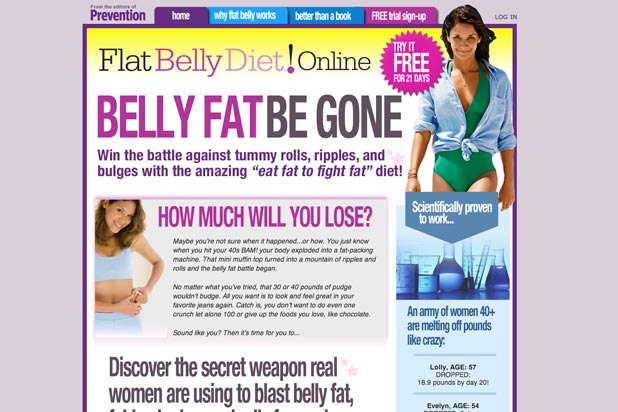12 Best And Worst Weight-Loss Programs According To Experts
Obesity is a prevalent issue in the United States. Despite the fact that we are seeing signs of a decline in obesity in children aged two to five, we are still far from any real progress in the adult community. According to the Centers for Disease Control, more than one-third of U.S. adults (34.9 percent) are obese. (Obesity is measured by a person's BMI, or Body Mass Index, a fairly antiquated system developed by Belgian mathematician Lambert Adolphe Jacques Quetelet in the late 19th century. Your BMI is a measure of body fat based on height and weight in adult men and women. Anyone with a BMI of over 30 is considered obese.) "The estimated annual medical cost of obesity in the U.S.," adds the CDC, "was $147 billion in 2008 U.S. dollars; the medical costs for people who are obese were $1,429 higher than those of normal weight."
Click here for the 12 Best and Worst Weight-Loss Programs (Slideshow)
Aware that they are obese, many people make concerted efforts to lose weight. Thus, today, there are estimated to be more than 50 million Americans on a diet. According to a 2010 study, 93 percent of dieters "find at least one aspect of their dieting plan to be challenging; the majority said they aren't able to control cravings (71 percent) and find portion size an obstacle to their success (64 percent)." So with 50 million Americans considering themselves to be "on a diet" what are they doing to be one of the success stories?[pullquote:left]
Many of them are turning to commercial weight-loss programs for answers. The business of losing weight has become just that: a business. While it may cost Americans a lot to be obese, major weight-loss companies are raking in the benefits — an estimated 60.8 million dollars annually.
So we were curious: if Americans are turning to major commercial diets —industry names that use both a program and commercial products to help their client base lose weight — which ones were the plans doctors could get behind? To try to find the answer, The Daily Meal partnered with Everyday Health and MedPage Today and polled over 900 medical professionals, including doctors, registered dietitians, nurse practitioners, and clinicians to determine not only which commercial weight-loss diets are most recommended by these experts in the field, but which ones they believe patients should stay away from.
In ten-question anonymous survey, we asked our professional panelists to give their opinions on 12 of the most popular commercial weight-loss programs, asking them questions not only about the diets themselves, but about their overall approaches to dieting and weight-loss. We allowed them to choose diets and gave them the ability to provider further explanations in additional fields. The results were interesting.
While 89.6 percent of our survey participants recommended a combination of diet and exercise as the preferred weight-loss method, one panelist commented: "I discuss the need to let go of weight loss as a goal at almost every visit. I specifically urge patients, even those with a co-occuring medical condition, to instead shift their focus to the behaviors that are known to influence health regardless of size, because this is what they can do something about. In contrast, size is a result that they may be able to influence, but cannot control. It can take a lot of work to help a patient to relinquish their idea that the goal of weight loss is essential for health, so it comes up a lot. I work with all patients to help them shift the focus from weight to behaviors that enhance health for anyone, regardless of size. Focus on weight and the goal of weight loss has proven to be stigmatizing, demoralizing, and counter-productive for the vast majority of people."
Furthermore, only 32.7 percent of our professional panel noted that they sometimes prescribe one of these popular commercial weight-loss diets. Another panelist noted, "Focusing on lowering weight by diet and exercise is not evidenced based in my opinion. Have you read any that keep significant weight off for more than 20 percent after 2-5 years? Dieting promotes weight gain. I help clients eat for health, exercise in a pleasurable way, and encourage self acceptance."
With all of this in mind, the fact remains that many people are turning to programs like Atkins, NutriSystem, and Weight Watchers for assistance. To help put the most popular commercial diets into perspective, we determined a ranking, from least to most recommended, based on total number of survey responders, focusing on weight-loss effectiveness, long-term effectiveness least, diets panelists felt most comfortable recommending and diets penelists felt least comfortable recommending. Before you turn to one of the diets on this list, read what 900-plus medical professionals feel about the diet you're considering — and, of course, ask your own doctor for advice.
12. WonderSlim

On the WonderSlim diet, consumers can choose from three plans that offer four, five, or seven portion-controlled meals per day. The idea is that all of the meals are portioned for weight loss, reducing intake of calories, carbs, and fats while providing ideal protein levels. The dieter eats every two to three hours. While it is possible to buy foods at the grocery store that correspond to each meal plan, many WonderSlim devotees pay to eat from over 70 meal selections provided by the company.
11. Flat Belly Diet

Using the idea that a diet filled with MUFAs (monounsaturated fatty acids) can combat fat in a person's body, the Flat Belly Diet claims to be a more effective plan than most. When signed up, dieters have access to a plethora of recipes and meal plans and the ability to connect with other dieters.
